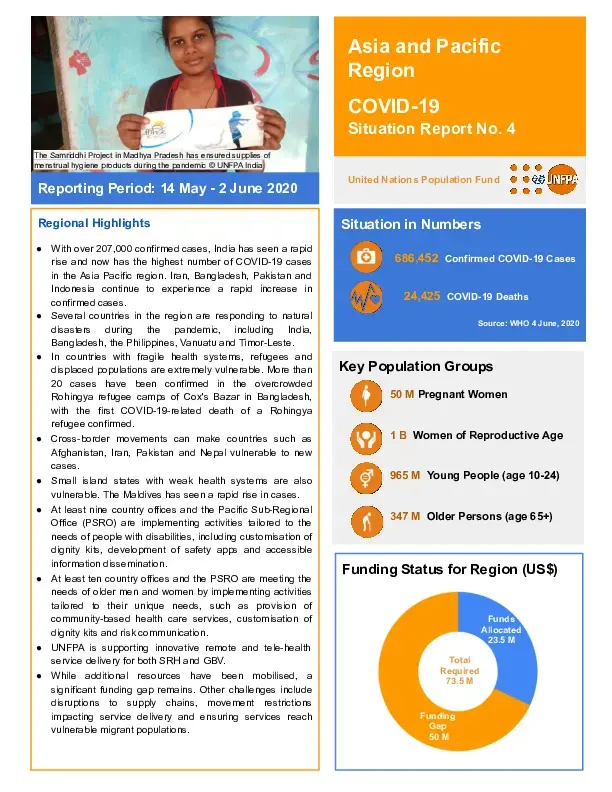Regional Highlights
With over 207,000 confirmed cases, India has seen a rapid rise and now has the highest number of COVID-19 cases in the Asia Pacific region. Iran, Bangladesh, Pakistan and Indonesia continue to experience a rapid increase in confirmed cases.
Several countries in the region are responding to natural disasters during the pandemic, including India, Bangladesh, the Philippines, Vanuatu and Timor-Leste.
In countries with fragile health systems, refugees and displaced populations are extremely vulnerable. More than
20 cases have been confirmed in the overcrowded Rohingya refugee camps of Cox's Bazar in Bangladesh, with the first COVID-19-related death of a Rohingya refugee confirmed.
Cross-border movements can make countries such as Afghanistan, Iran, Pakistan and Nepal vulnerable to new cases.
Small island states with weak health systems are also vulnerable. The Maldives has seen a rapid rise in cases.
At least nine country offices and the Pacific Sub-Regional Office (PSRO) are implementing activities tailored to the needs of people with disabilities, including customisation of dignity kits, development of safety apps and accessible information dissemination.
At least ten country offices and the PSRO are meeting the needs of older men and women by implementing activities tailored to their unique needs, such as provision of community-based health care services, customisation of dignity kits and risk communication.
UNFPA is supporting innovative remote and tele-health service delivery for both SRH and GBV.
While additional resources have been mobilised, a significant funding gap remains. Other challenges include disruptions to supply chains, movement restrictions impacting service delivery and ensuring services reach vulnerable migrant populations.


